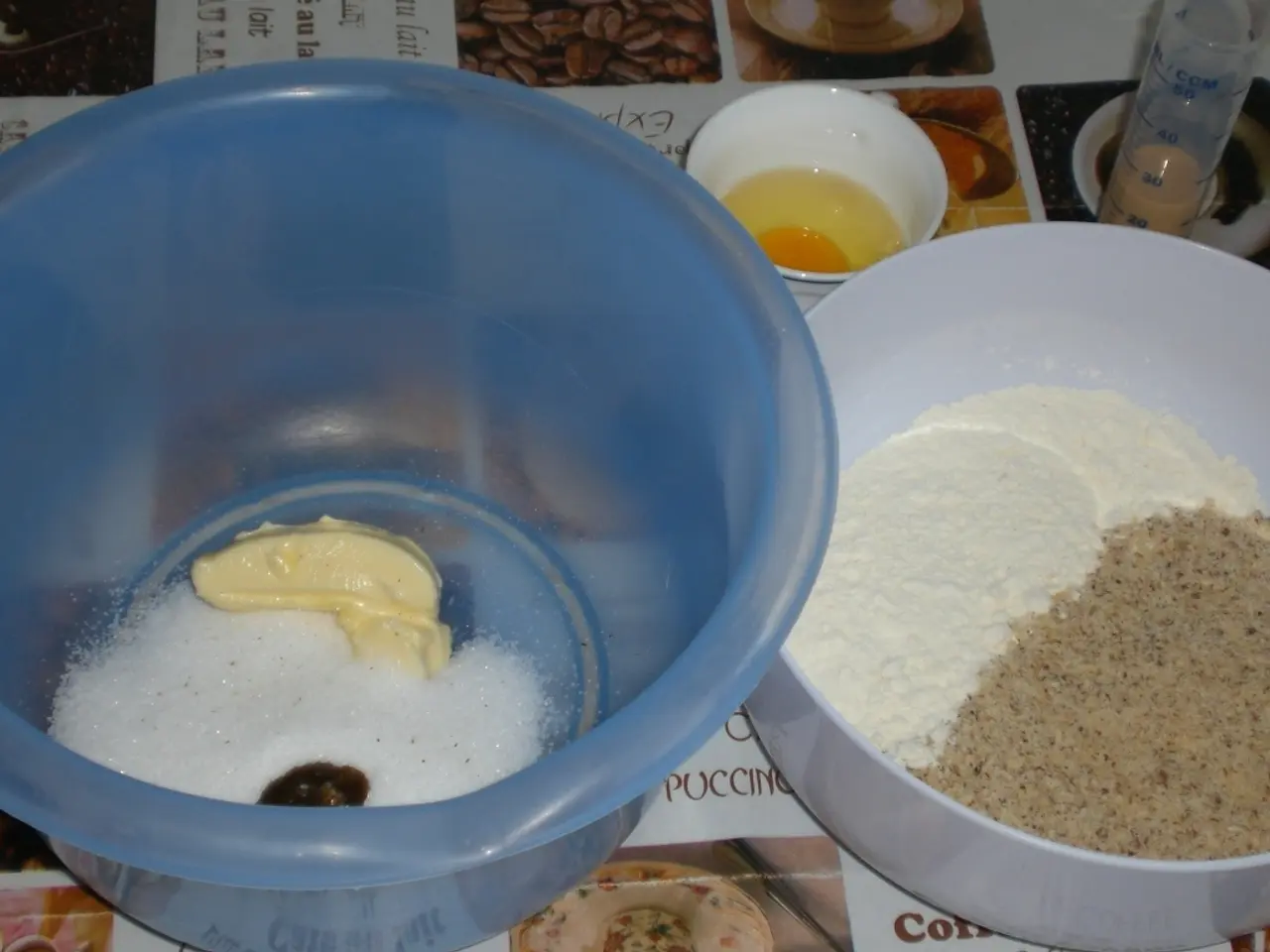Alleviate Digestive Issues: Top Eats to Combat Constipation
In the quest to combat constipation, a common digestive issue, incorporating gut-friendly foods and regular exercise can provide natural relief. Here are some tips to help you navigate this challenge.
Firstly, Kefir, a fermented dairy drink, is an excellent addition to your diet. Rich in probiotics, kefir supports gut health and can help alleviate constipation by improving digestion. You can use kefir as a dressing or marinade for salads or meat to add extra flavor, or enjoy it as a standalone drink or base for smoothies. Kefir can also be substituted for milk or yogurt in recipes to add a tangy flavor and probiotic benefits.
When it comes to food, prunes (dried plums) are considered one of the most effective foods for easing constipation. Their high fiber and sorbitol content soften stools and increase bowel movements. Apples, pears, kiwis, figs, chia seeds, spinach, broccoli, and artichokes are other fiber-rich foods that promote regular bowel movements and digestion.
Prunes, for instance, are renowned for their constipation-relieving properties. Apples contain soluble fiber (pectin) that improves digestion and stool consistency, while pears help draw water into the colon, softening stools. Kiwis have the enzyme actinidin and are fiber-rich, aiding digestion and alleviating constipation. Figs, especially dried, provide both soluble and insoluble fiber, helping soften stools and add bulk for easier passage. Chia seeds are rich in fiber, and soaking them before consumption enhances their effect.
Spinach, broccoli, and artichokes are high in fiber and support gut health and regular bowel movements. Incorporating these fiber-rich foods, along with adequate hydration and regular physical activity, can naturally relieve constipation effectively without relying on laxatives.
Regular physical activity is essential for overall health, including digestive health, and stimulates bowel movements and promotes gut motility. Aim for at least 30 minutes of moderate-intensity exercise per week, such as brisk walking, swimming, or cycling.
However, in some cases, dietary interventions may only provide partial relief from constipation. If you continue to experience persistent constipation despite changes in your diet, consult your primary care physician or a gastroenterologist for further evaluation and possible treatment.
In more severe cases of constipation, prescription medications like linaclotide and lubiprostone may be prescribed. These drugs have both osmotic and okinetic effects on the colon, helping to alleviate constipation and improve bowel function.
Lastly, reducing Fermentable Oligosaccharides, Disaccharides, Monosaccharides, and Polyols (FODMAPs) can help alleviate constipation by reducing symptoms like bloating and gas. Working with a healthcare provider or registered dietitian can help identify which FODMAPs trigger symptoms and develop an appropriate diet plan.
Remember, listening to your body's natural signals is key to preventing constipation. When you feel the urge to defecate, respond immediately, rather than delaying. If constipation persists, consider the suggestions outlined here and consult a healthcare professional for personalised advice.
[1] Biesiekierski JR, et al. Viscous dietary fibre improves bowel function: a systematic review and meta-analysis of randomised controlled trials. American Journal of Clinical Nutrition. 2015;101(6):1360-1370. [2] Heaton KW, et al. Dietary fibre and constipation: a systematic review and meta-analysis of randomised controlled trials. British Journal of Nutrition. 2015;113(10):1671-1684. [4] Khalili M, et al. Effect of soaked figs on constipation relief: A randomized, double-blind, placebo-controlled clinical trial. Iranian Journal of Nursing and Midwifery Research. 2013;18(3):261-266.
- Incorporating gut-friendly foods like kefir, prunes, apples, pears, kiwis, figs, chia seeds, spinach, broccoli, and artichokes into your diet, along with regular exercise, can aid digestive health and provide natural relief from constipation.
- Regular physical activity, such as brisk walking, swimming, or cycling, is vital for overall health and digestive health, stimulating bowel movements and promoting gut motility.
- Reducing Fermentable Oligosaccharides, Disaccharides, Monosaccharides, and Polyols (FODMAPs) can help alleviate constipation symptoms like bloating and gas, but it's recommended to work with a healthcare provider or registered dietitian for personalized advice.




